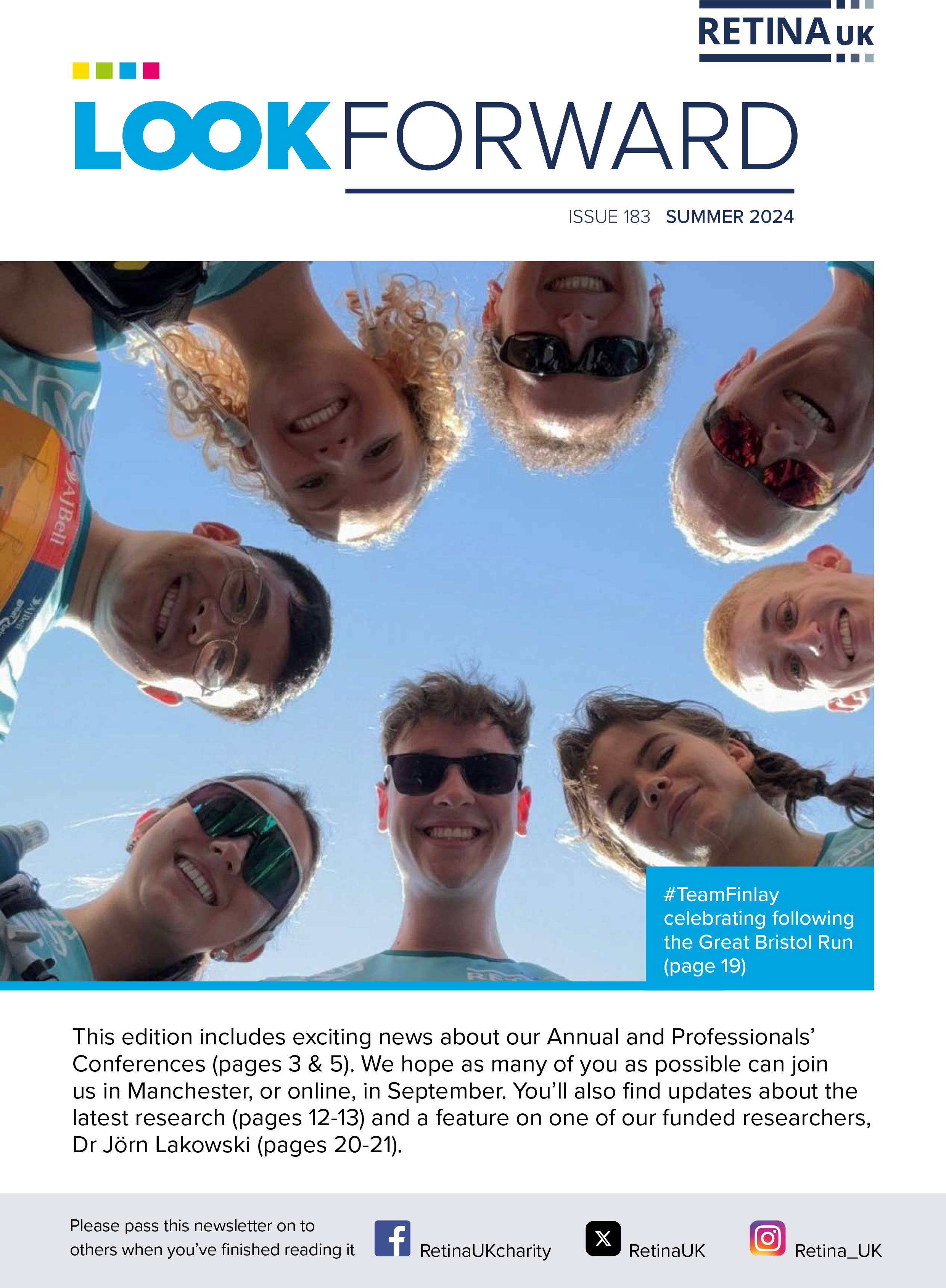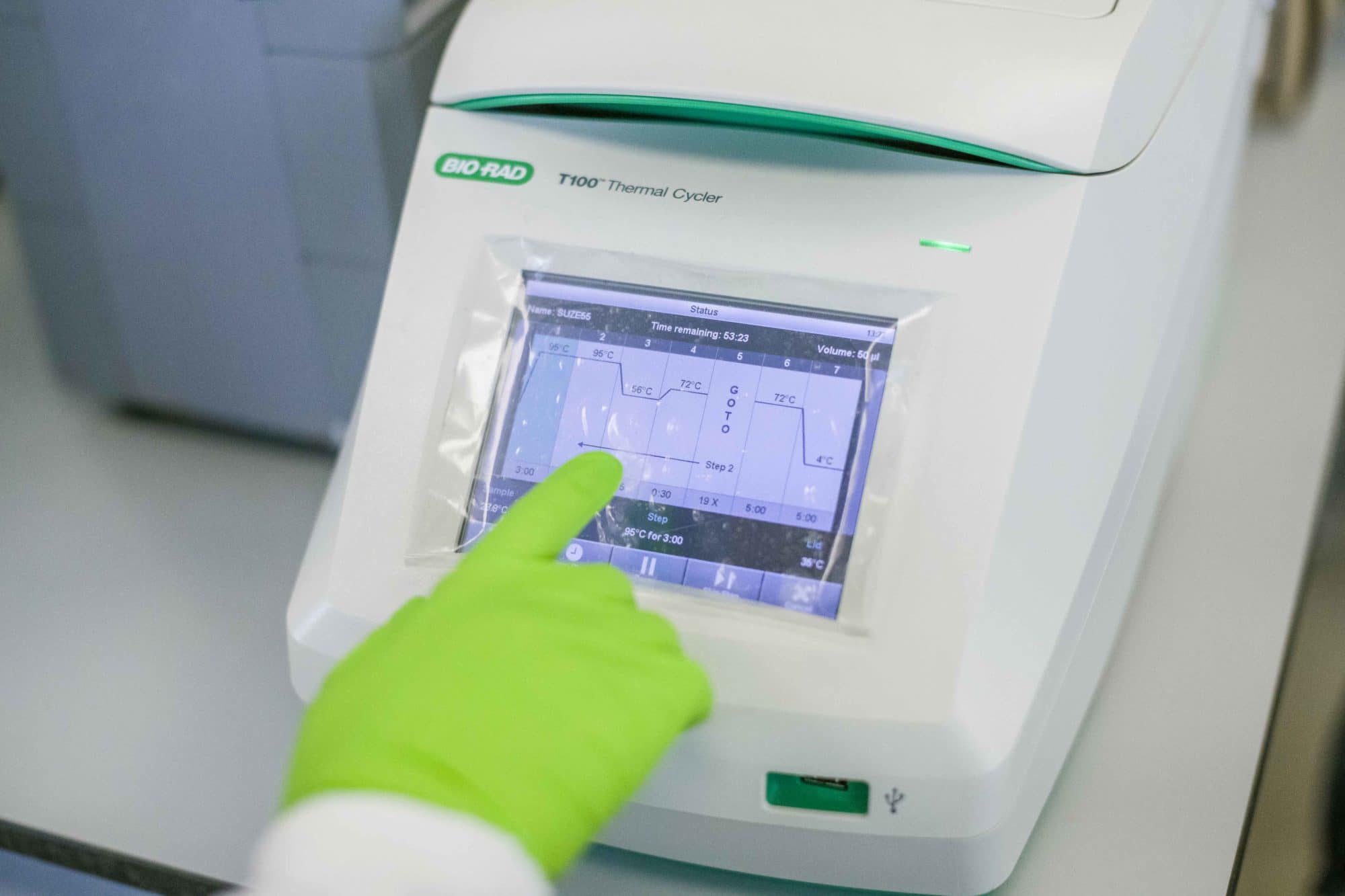ProQR makes progress with potential treatment for LCA
Despite the challenges of the pandemic, researchers and pharmaceutical companies are still making progress towards delivering new treatments for inherited sight loss.
Search results
Despite the challenges of the pandemic, researchers and pharmaceutical companies are still making progress towards delivering new treatments for inherited sight loss.
Biotechnology company MeiraGTx has announced encouraging news from its phase 1/2 clinical trial of botaretigene sparoparvovec (previously known as AAV-RPGR), a gene therapy aimed at X-linked retinitis pigmentosa caused by faults in the RPGR gene.

Inside this edition, set yourself a challenge in 2024, plus find out about our brand new lottery.

Inside this edition, register now for our AI webinar on 7 December with Dr Nikolas Pontikos.

This edition includes exciting news about our Annual and Professionals’ Conferences. We hope as many of you as possible can join us in Manchester, or online, in September. You’ll also find updates about the latest research and a feature on one of our funded researchers, Dr Jörn Lakowski.

Retina UK aims not only to progress research along established threads, but to stimulate new thinking, encourage innovative approaches and nurture original ideas.

The Spring 2023 edition of the Retina UK newsletter, Look Forward, which includes articles about our upcoming events, research updates and more.
Disulfiram (Antabuse), FDA-approved for deterring alcohol, is in a phase 1 trial at the University of Washington to improve vision in retinitis pigmentosa.

The FDA has given Ocugen permission to start their phase 3 gene therapy clinical trial for retinitis pigmentosa (RP).
It was previously believed that female carriers of X-linked inherited retinal diseases (IRDs) like X-linked retinitis pigmentosa (RP and Choroideremia) remained unaffected by sight loss.